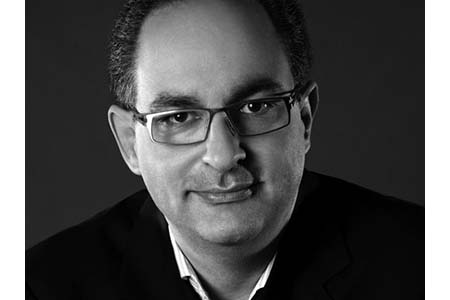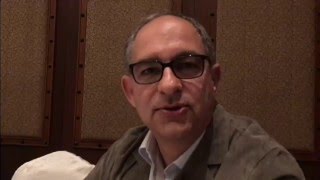The panel at the annual ASBU BroadcastPro ME Selevision Summit and Awards 2017 on MENA content, could not predict where the regions next internationally successful production will emerge, but agreed that the 30-episode Arabic drama formula needs an urgent rehaul. The word censorship is inevitable in any discussion on MENA-based content. And it did crop […]
 The panel at the annual ASBU BroadcastPro ME Selevision Summit and Awards 2017 on MENA content, could not predict where the regions next internationally successful production will emerge, but agreed that the 30-episode Arabic drama formula needs an urgent rehaul.
The panel at the annual ASBU BroadcastPro ME Selevision Summit and Awards 2017 on MENA content, could not predict where the regions next internationally successful production will emerge, but agreed that the 30-episode Arabic drama formula needs an urgent rehaul.
The word censorship is inevitable in any discussion on MENA-based content. And it did crop up at the end of the first quarter of the first panel at the annual ASBU BroadcastPro ME Selevision Summit and Awards 2017. The panel was titled MENA Content: Cross-cultural viewership trends and identifying successful global distribution patterns.
What was unexpected for the 300-odd delegates gathered at the Habtoor Grand Ballroom was the candid autopsy of a formula for content creation across the Arab countries that has run its course.

The question posed by moderator Heba Korayem, Client Director, Mena.TV Content Hub, was about how Arabic content can travel globally like Korean and Turkish content.
There is no secret formula, declared Fadi Ismail, GM of O3 Productions, MBC Group, who has played a pivotal role in internationalising Turkish content.
“There is no secret formula. Content needs to be authentic to the culture,” Fadi Ismail, GM of O3 Productions, MBC Group
Content needs to be authentic to the culture, plus you need good storytelling and good production values. With Turkish dramas, you had good-looking characters, great storytelling and excellent production values that projected authentic Turkey. The same can be said about Korean content, and hopefully, we will say the same about Arabic drama. We are at the beginning of the journey. It will be a long, slow and painful process as producers and broadcasters adapt to international standards in formatting, pricing and so on.

Gianluca Chakra, MD of Front Row Filmed Entertainment, went one step further. Having successfully distributed Lebanese film Very Big Shot, now available on Netflix worldwide, his company is also a content aggregator for Google Play, Netflix and iTunes. He believes there is a dearth of storytelling talent in the region.
I believe the self-censorship that writers here … subject their creative process to is most damaging to good content creation Gianluca Chakra, MD of Front Row Filmed Entertainment
Very Big Shot was about crime in Lebanon, and locally, the press believed that we had portrayed Lebanon in a negative manner. Netflix saw what was perceived as daring in this region as marketable. In the MENA, you have to be careful about what you say. I believe the self-censorship that a lot of writers here subject their creative process to is most damaging to good content creation.

Countering that argument, Safa Aburiziq, General Director of Beelink Productions, co-producer of the UAEs first legal TV drama among other productions, said: Being daring is not essential. You can achieve success with family-friendly content as well. Before we talk about global expansion, I believe we should achieve success in our region. You have already succeeded if your drama is being seen in countries across the MENA.
Before we talk about global expansion, I believe we should achieve success in our region Safa Aburiziq, General Director of beelink Productions
We are still young as an industry. Ten years ago, when Turkish dramas became big, our talent was mostly in cinema. Now they have come to TV, and we have begun to see the results. Our drama series Grand Hotel has been sold to Netflix. It is the first Arabic drama series to be distributed on a global scale and translated into various languages.
As the audience applauded the success story from the MENA region, Ismail struck a sober note by weighing the handful of successes against the number of TV dramas produced in the region.
We have not reached breakthrough yet, when just one or two of the 500 dramas produced in the last five years might have been picked up by Netflix or others. Local success is necessary, but it is not sufficient. Even a number one rated TV series in any of the territories of the region might not be sold internationally. Also, our 30-episode formula for Ramadan is not conducive for an international platform.
The audience was then treated to a ringside view of the lopsided content creation typical of the region. The pressure to produce drama for the 30-day Ramadan period, leaving very little for the rest of the year, was described as insane by one panelist.
You cannot have one writer write a whole 30-episode drama in a couple of months, produce it in two-three months, and call the product world-class, declared another.

Change is coming, said Badih Fattouh, CEO of Creative Ventures, driven by youth. With 25 years of experience in the industry having been the first to identify bankable hits such as The Voice and Arab Idol, Fattouh struck a note of optimism.
The MENA audience is overwhelmingly young, and they have switched to VOD. While linear TV will not be replaced, the name of the game is coexistence between VOD, FTA and pay TV, each catering to a different profile of viewers. The entrance of international players will hopefully create a demand and spur local producers to elevate standards of production. We still have amazing local stories that have crossed borders.
While linear TV will not be replaced the name of the game is coexistence between VOD, FTA and pay TV Badih Fattouh, CEO of Creative Ventures
Take for instance Nobel prize-winning Naguib Mahfouz, who wrote about the poor on the streets of Cairo. What is missing, however, is constructive partnership between broadcasters and content creators that allows for a storyline and characters to be developed. Our workflow does not have this luxury of time that can produce something unique, and this is affecting the outcome.
Chakra agreed that international players such as Netflix with a reported $8 billion, Apple with $2 billion and other platforms will eventually come to this region, but you cannot just rely on Egyptian shows, you need to go more local with UAE dramas, Kuwait-based shows and so on to build a following for local content. Formulaic content will never travel.
Optimistic about the future, Ismail reiterated that competition with outside players will create dynamism.
Forget the billions of dollars. What is needed is much less to change the game. It takes few global players to come and invest $5 million each for original content. Local players such as Shahid Plus are about to start creating their own premium content and will have to intensify their efforts O3 is now moving away from the 30-episode formula and is developing a 15-episode Saudi series with a different approach to storytelling that we hope will become big. We need to experiment and take calculated risks, even if conditions are against us. Advertising is down 20-40%, and it is a wonderful time for collaboration and co-production. The usual commercial and ego-related issues are no longer roadblocks.
Fattouh of Creative Ventures stressed that the mindset and format need to change.
We spoke of the success of Turkish dramas, but we did not address the number of those dramas that get axed. In this region, by the time the feedback comes in for a 30-episode drama, the project is done. However, if you had the pressure to sustain ratings on a daily basis with the fear of being axed mid-season, productions would get sharper.
Charting a pragmatic route forward, Aburiziq said: We have a mix between scripted formats and original writing. We have excellent writers, but good original writing takes time. Hopefully, with the emergence of paid platforms, we will have liberty to talk about areas that are taboo.

Moderator Korayem highlighted the shockingly low number of global recognitions the region has had, with the one Oscar nod coming from unlikely Algeria in 1969 and the one Emmy award from Jordan in 2008. The next globally viral drama could emerge from anywhere across the MENA, the panelists agreed.
As Ismail concluded: The storytelling will be good. The production values will be better, and we will have that unique content that we dream about. We are not there yet. This is only the beginning.









































































.jpg)





